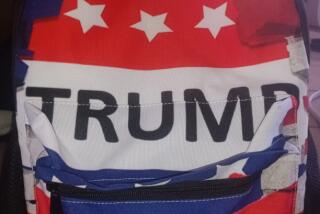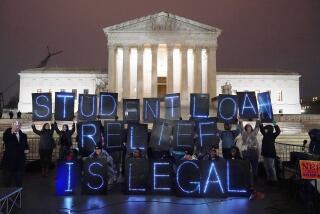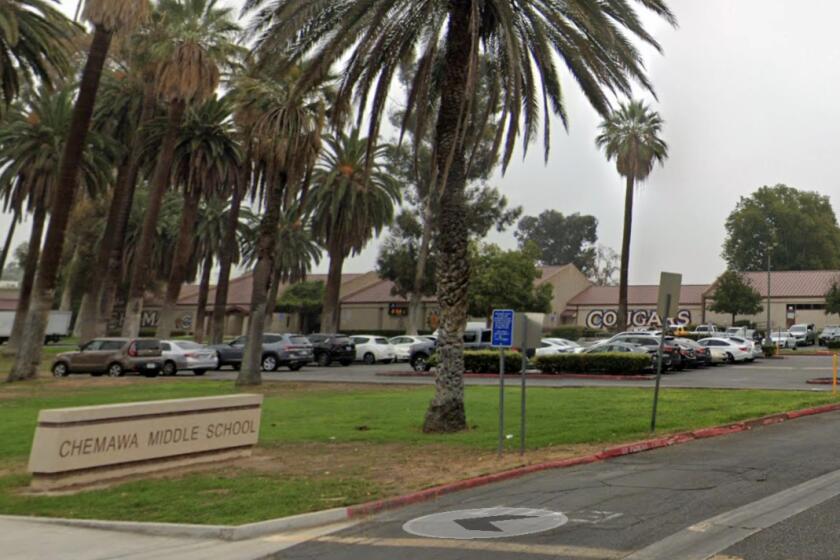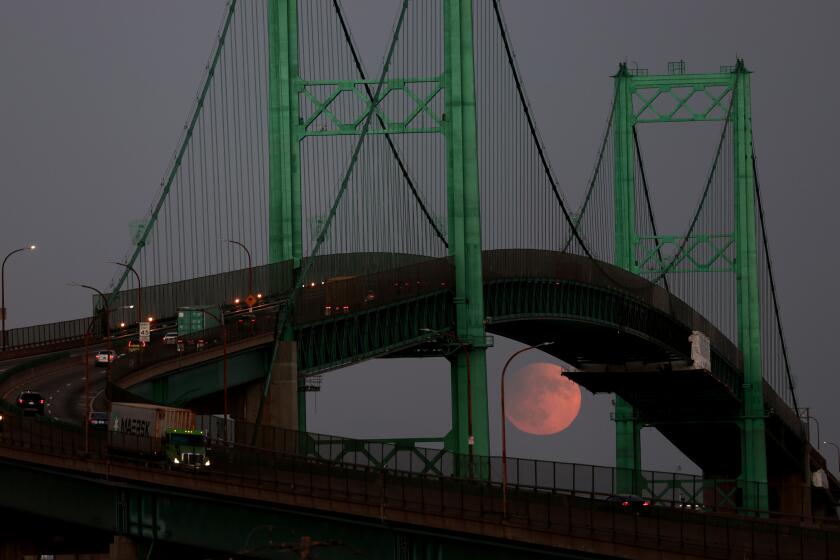Trump and Mnuchin pressure well-heeled private schools to return federal loans
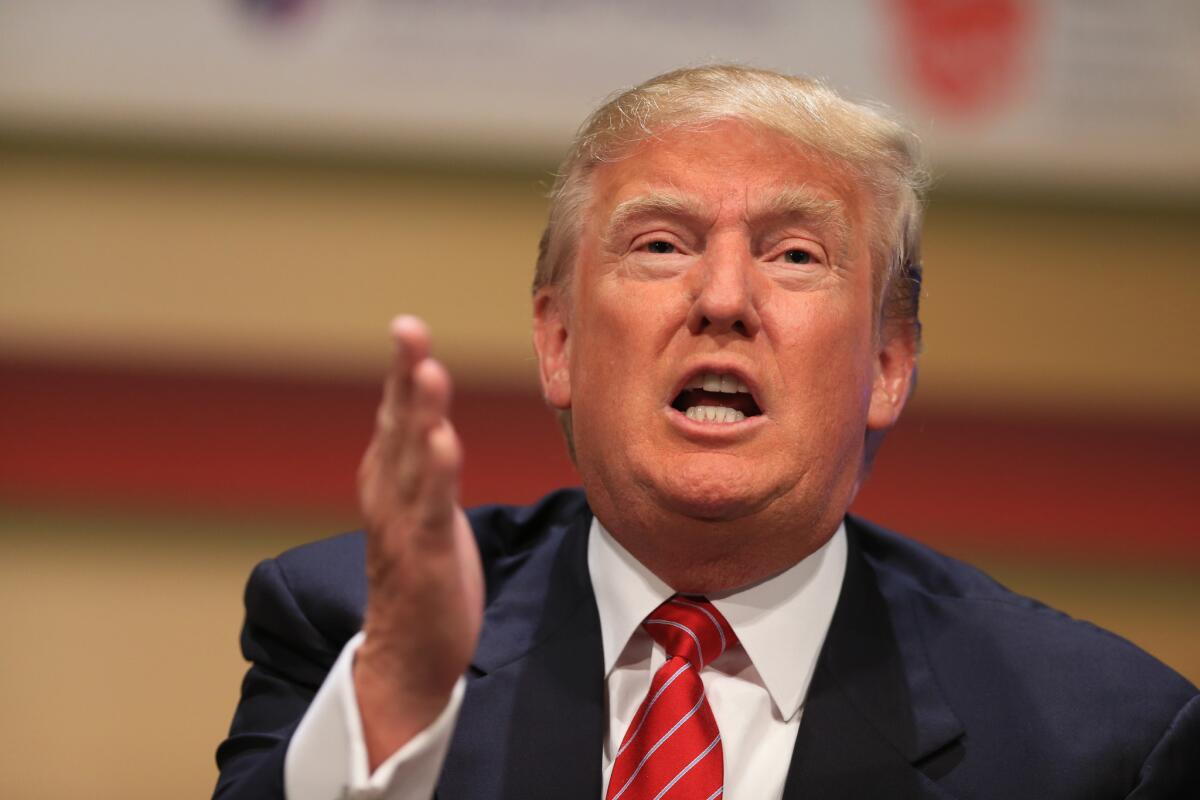
Elite private schools, including Brentwood School in West L.A., drew criticism Friday from President Trump, who said through a spokesman that those with “significant endowments” should consider returning money they have received from a federal coronavirus aid program.
“The president has made clear that he does not believe private schools with significant endowments should be receiving [Paycheck Protection Program] money and those that have should consider returning it,” White House spokesman Judd Deere said.
Trump’s comments followed earlier statements on Friday by Treasury Secretary Steven T. Mnuchin, who stepped up his previous criticism of private schools that have taken loans from the $660-billion PPP, which is designed to help small businesses affected by the coronavirus crisis and is part of the federal CARES Act that was signed into law March 27. Mnuchin went a step further than Trump, saying in a tweet that such schools “should return the loans.”
Both Trump and Mnuchin’s children attend exclusive private schools that have received PPP loans. The Times reported Thursday that Brentwood School, where at least two of Mnuchin’s children are students, took funding of an undisclosed sum.
Barron Trump, one of the president’s sons, attends St. Andrew’s Episcopal School in Potomac, Md., which said in a statement Friday it would keep the PPP money it received.
A representative of Brentwood did not respond to a request for comment Friday.
Deere, the White House spokesman, also referenced Trump’s previous statements on aid for universities. Harvard was among those in line to receive another form of funding under the CARES Act but opted not to take it following critical remarks from Trump.
Calling Harvard’s endowment “one of the largest ... maybe [in] the world,” Trump said last month of the aid: “They shouldn’t be taking it.”
Brentwood School, a K-12 facility with more than 1,100 students on two campuses, said Thursday that its PPP loan would help it navigate a future that could include “a potential decline in enrollment and charitable giving, accompanied by increased demand for financial assistance and other escalating expenses.” In 2017, the school had an endowment of $17.4 million, according to Internal Revenue Service data.
UCLA education professor Tyrone Howard criticized Brentwood’s decision to accept a PPP loan, contrasting the institution with public schools that he expects to struggle financially amid the pandemic.
“That’s not a good look,” said Howard of Brentwood’s move. “There’s just something that’s not equitable about that.”
Officials at several other expensive L.A.-area private schools — where high school tuition costs range from 38,000 to $44,000 a year — told The Times that their administrations opted to not apply for PPP loans, which are forgivable if certain parameters are met.
Harvard-Westlake School in Los Angeles, Marlborough School in Hancock Park, Crossroads School for Arts & Sciences in Santa Monica, and Flintridge Preparatory School in La Cañada Flintridge did not apply for the funding, their representatives said.
This week, Mnuchin has been critical of another well-heeled L.A. organization that received a PPP loan. In a CNBC interview Tuesday, he called it “outrageous” that the Los Angeles Lakers received a now-returned $4.6-million PPP loan.
Allocations of the PPP funding have come under intense scrutiny, with several other high-profile businesses and organizations, including Shake Shack Inc., saying they would give back their loan after facing public pressure. Mnuchin has threatened to hold participating companies criminally liable if they do not meet criteria for the program, whose loans are designed to help pay for workers’ salaries.
On April 26, the Small Business Administration, which backs the PPP loans, issued revised guidelines for the program that make clear big, public companies with other financing options shouldn’t seek the money. It also cautioned entities receiving the loans that they might be asked to certify the funding was required for continued operation.
The new guidance made at least one private school think twice. Polytechnic School in Pasadena said it received a PPP loan on April 24, but after reviewing the SBA’s updated directive, decided Thursday to reverse course.
“We determined, based on the new guidelines, that we would return the funds,” said John Bracker, head of school at Polytechnic. He added that the school already is “seeing some financial impacts” and anticipates “broader and more profound consequences on our community in the months to come.”
Brentwood’s leadership also outlined the pandemic’s effect on the school, saying in its Thursday statement that “the dramatic and enduring impacts of COVID-19 will continue to affect our school financially, and in other ways, over the course of at least the next year.”
Founded in 1972, Brentwood’s board members include actress Calista Flockhart and investor Lance Milken, son of billionaire Michael Milken, the former junk bond king. Tuition ranges from $37,500 a year for kindergarten through fifth-grade students to $44,000 for sixth- through 12th-grade pupils.
Brentwood has said that salaries and benefits for faculty and staff are the school’s largest operating expense, and it noted that its endowment “does not contribute interest income to our operating budget.”
“We rely on donations beyond tuition revenue each year to balance our budget,” the school said.
Brentwood’s $17.4-million endowment as of 2017 — the most recent year for which data were available — is lower than some of its peers. Harvard-Westlake had an endowment of $146.8 million in 2018, Polytechnic’s was $75.3 million in 2017, and Malborough’s was $50 million 2016, according to IRS data.
Schools are typically reluctant to pull from their endowment to fund operating costs. Some donations to an endowment have restrictions on how the money can be used. However, in the case of Malborough, the girls school said in a statement that its “strong endowment” and “recognition that there are many organizations with much greater need than ours” led to its decision to not seek PPP funding.
Lower-cost private institutions, including Catholic schools, have been hit hard — and many were struggling financially before the pandemic. All 240 schools in the Los Angeles Archdiocese applied for PPP funding, with 39 successful so far. Tuition is typically $5,000 to $10,000 a year, with financial aid available. Now many families are simply unable to pay.
The Diocese of San Bernardino has received no funding to date, even though 20 of its 26 schools reported a sudden drop in tuition revenue. The result has been layoffs or salary reductions for 110 out of 741 employees even as schooling continues via distance learning, spokesman John Andrews said.
The federal support “would be a major help … a huge thing,” Andrews said.
Private prep schools may not be the first entity that comes to mind when considering aid for small businesses. But that’s what they are, and times are tough for many of them, said Mary Menacho, interim executive director for the California Assn. of Independent Schools, the organization for 224 private schools in the state.
“All of these schools are small businesses when it comes down to it … [and] have really bent over backwards to keep their programs going and their people employed,” she said.
Times staff writer Sonali Kohli contributed to this report.
More to Read
Sign up for Essential California
The most important California stories and recommendations in your inbox every morning.
You may occasionally receive promotional content from the Los Angeles Times.

